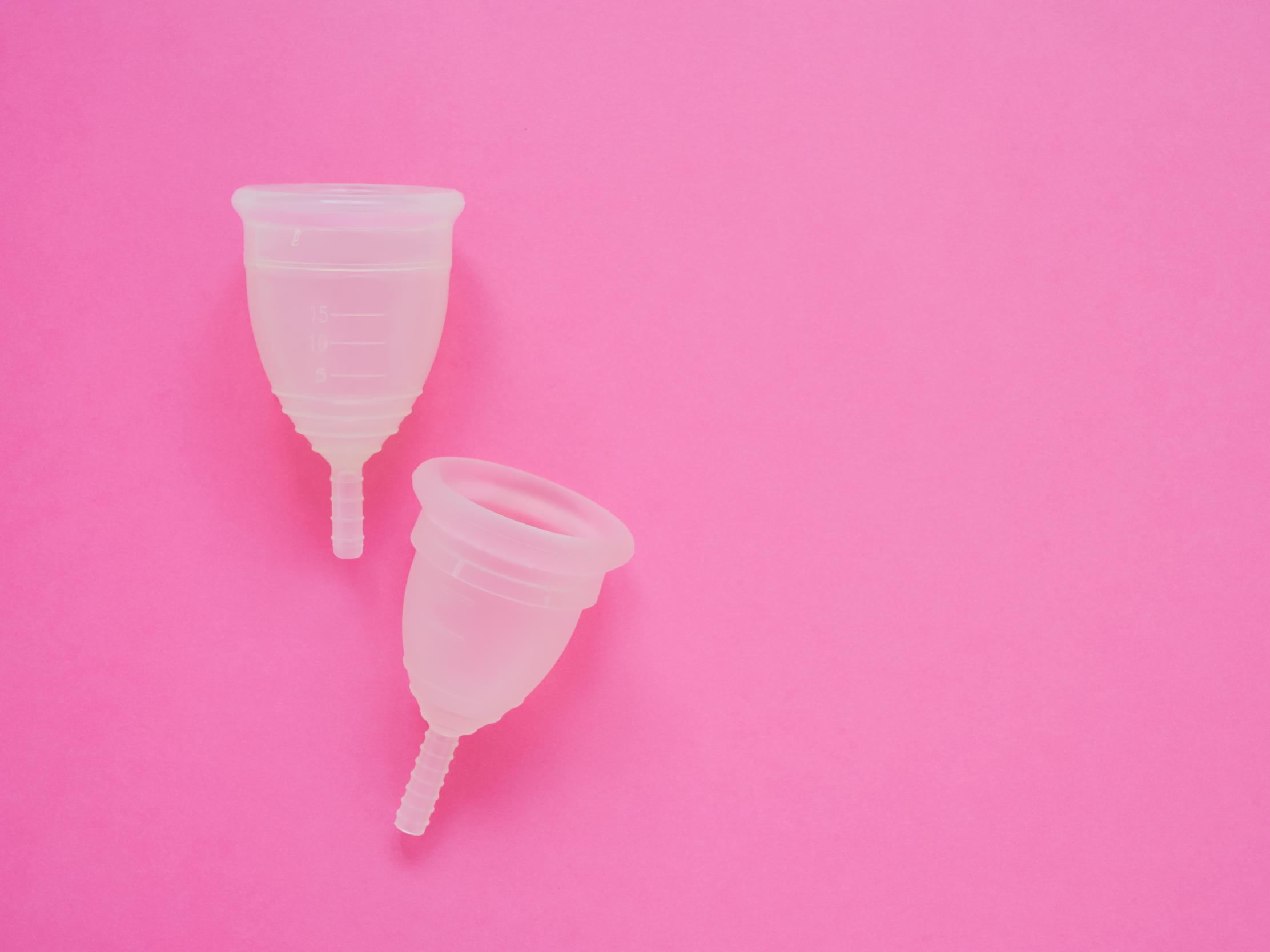Menstrual cup misuse can ‘lead to greater risk of pelvic organ prolapse’, experts warn
Menstrual cups have grown in popularity recently because they are more sustainable than other methods

Your support helps us to tell the story
From reproductive rights to climate change to Big Tech, The Independent is on the ground when the story is developing. Whether it's investigating the financials of Elon Musk's pro-Trump PAC or producing our latest documentary, 'The A Word', which shines a light on the American women fighting for reproductive rights, we know how important it is to parse out the facts from the messaging.
At such a critical moment in US history, we need reporters on the ground. Your donation allows us to keep sending journalists to speak to both sides of the story.
The Independent is trusted by Americans across the entire political spectrum. And unlike many other quality news outlets, we choose not to lock Americans out of our reporting and analysis with paywalls. We believe quality journalism should be available to everyone, paid for by those who can afford it.
Your support makes all the difference.Women who use menstrual cups incorrectly could be at greater risk of suffering pelvic organ prolapse, an expert has warned, as the products continue to grow in popularity.
Menstrual cups fit into the vagina and are designed to collect blood during a women’s period. At present, they are not safety tested in the UK and not regulated by authorities.
Usually made of rubber or silicone, the cups can last up to 10 years, can hold more blood than other methods and are more sustainable than other products such as tampons.
The Chartered Society of Physiotherapy (CSP) has called on manufacturers to include better safety advice following claims that they were responsible for minor pelvic organ collapse.
Physiotherapist Kate Lough told The Independent that instructions on how to use the products can be unclear.
She added: “Some of the information included with menstrual cups can be hard to understand and not accurate, particularly the advice about taking the cup out.
“With many women using cups, this issue needs highlighting and manufacturers should provide credible advice from a respected source that is clear and easy to follow.”
Ms Lough says the advice around removing the cups is particularly worrying. She added that using your pelvic muscles to bring the cup lower in the vagina is not correct and counters advice given to avoid prolapse.
According to the NHS, a pelvic organ prolapse is when one or more of the organs in the pelvis slip down from their normal position and bulge into the vagina.
The organs can include the womb, blower or bladder. A prolapse is not life-threatening but can cause pain and discomfort.
One woman, Jenny, told the BBC's Victoria Derbyshire programme that she felt menstrual cups were responsible for her minor pelvic organ prolapse, having used the product for three months.
She added: “I was scared and I was worried. I didn’t know what it might mean in the long-term”.
A report published in the Lancet Public Health journal in 2019 concluded that menstrual cups “were a safe option” and that the vast majority of women do not experience problems.
Mooncup Ltd, a menstrual cup manufacturer, says that the growth in the market has seen “misleading information” around using the products.
The company says its products are made “to the highest quality standards”.
In a statement, Mooncup added: “The Mooncup menstrual cup is designed to be worn as low in the vagina as comfortably possible with a clear space between the top of the cup and the cervix.
“It is important that the cup is not positioned in contact with or over the cervix, and that the seal is fully released before removing the cup. The Mooncup menstrual cup comes with comprehensive instructions for use.”
The Independent has contacted NHS England for comment.
Join our commenting forum
Join thought-provoking conversations, follow other Independent readers and see their replies
Comments